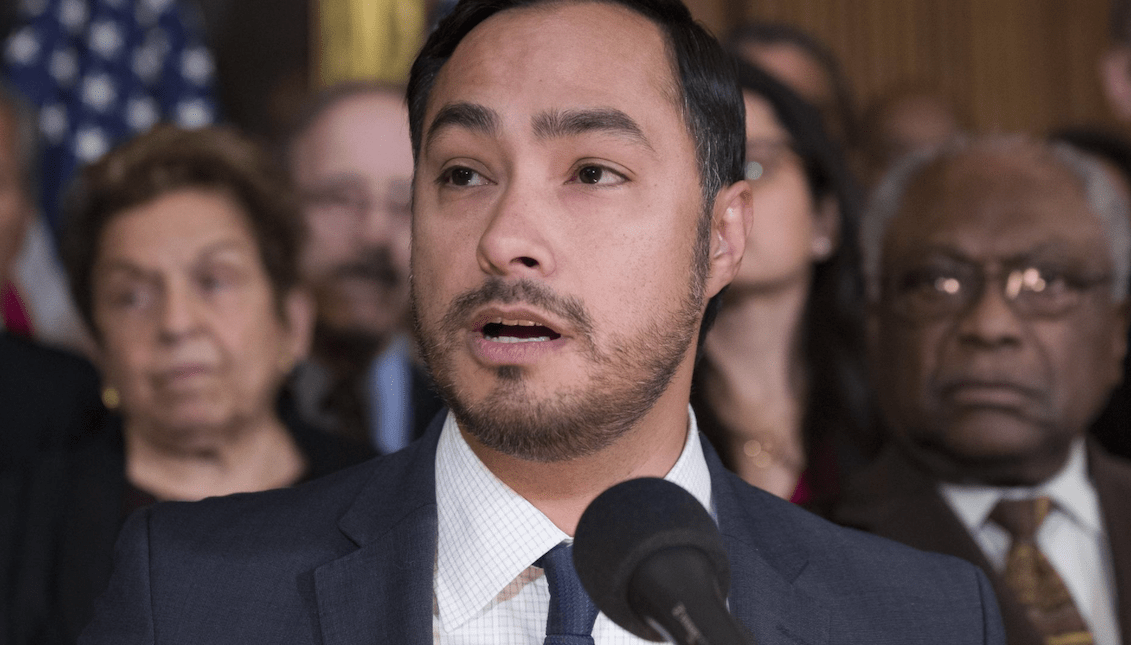
The push to make State Department internships paid is gaining steam
A new bill by Sens. Cory Booker and Tim Scott to make all State Department internships fully paid follows a similar bill by Rep. Castro.
Unpaid internships are under fire, as members of Congress have ramped-up their legislative and vocal efforts against the workforce practice.
It's part of a larger argument of the potential for exploitation and inequity, especially on Capitol Hill, where staff diversity is a glaring issue.
In mid-February, Rep. Joaquin Castro (D-TX) reintroduced his bipartisan bill to guarantee financial support and paid internships in the U.S. State Department.
“This commonsense legislation will make internships at the State Department fairer, more rewarding, and more open to all, and is a crucial part of my focus on ensuring American diplomats reflect the diversity of the American people,” Castro wrote.
The bill states students participating in the program shall be paid at least the minimum wage or higher, depending on the amount specified within the Fair Labor Standards Act of 1938 — whichever is higher.
Castro’s bill is similar to a recent bill by Sens. Cory Booker and Tim Scot, who introduced a bipartisan bill to make all State Department internships fully paid. In a press release, the two cite a declining figure in the number of women and Black people working at the State Department.
It would make all State Department internships pay the jurisdiction’s minimum wage, and also provides housing for students who live outside of the U.S. for their internships, as well as for those who work more than 50 miles away from their permanent address, reports Insider.
Targeted outreach to institutions serving underrepresented populations like Black and Latino students would also be mandated, according to the senators.
Castro welcomed the senators’ new bill.
“This is a big deal. Paid @StateDept internship bill is now both bipartisan and bicameral.I’ll work together with @SenBooker to sign it into law,” he wrote on Twitter, adding that he believes the legislation is an important step toward “a more diverse and inclusive diplomatic corps.”
This is a big deal.
— Joaquin Castro (@JoaquinCastrotx) March 4, 2021
Paid @StateDept internship bill is now both bipartisan and bicameral.
I’ll work together with @SenBooker to sign it into law.
This legislation is an important step toward a more diverse and inclusive diplomatic corps. https://t.co/kZytU3peqG
Were it up to Rep. Alexandria Ocasio-Cortez, her initiative would go further. Already, she has disclosed that she pays her own interns $15 an hour.
RELATED CONTENT
“Pay your interns!” The New York rep. wrote on Twitter. “It’ll improve your operation and make it more diverse and just. You won’t be relying on privilege to subsidize staffing and your interns can do better work that they’re proud of when they aren’t exhausted working 2-3 jobs to subsidize one.”
Rep. Ocasio-Cortez later indicated that Congress needs to do more in order to allocate funds so that internships can be paid. Currently it does not. She suggested legislators must make moves to grow the MRA to pay interns.
She added that while there is some funding to support interns, “it’s not nearly enough to pay for the # of interns that actually work here.”
Pay your interns!
— Alexandria Ocasio-Cortez (@AOC) March 1, 2021
It’ll improve your operation and make it more diverse and just. You won’t be relying on privilege to subsidize staffing and your interns can do better work that they’re proud of when they aren’t exhausted working 2-3 jobs to subsidize one.
We pay ours $15/hr. https://t.co/96M4XaY0GY
Staff diversity is a glaring issue, despite the current Congress being the most diverse in history.
Last summer, Rep. Tony Cárdenas highlighted the issue, saying the legislative body was “failing” on staff diversity, and that the diversity of staff among representatives and senators is not reflective of their own diversity.
A study by the Joint Center revealed that in 2018, 84% of chiefs of staff, 88% of legislative directors, and 87% of communications directors were white. Out of 1,110 senior staff positions, just 152 were BIPOC. There are only 10 communications directors of color out of roughly 100 in the U.S. Senate.
They’re the people who run Washington in a different sense, but very few BIPOC staffers are seen among their ranks.
It’s an issue that can be traced back to increased barriers, and the issue of not being able to afford unpaid internships — the gateway that puts people in those positions.










LEAVE A COMMENT: